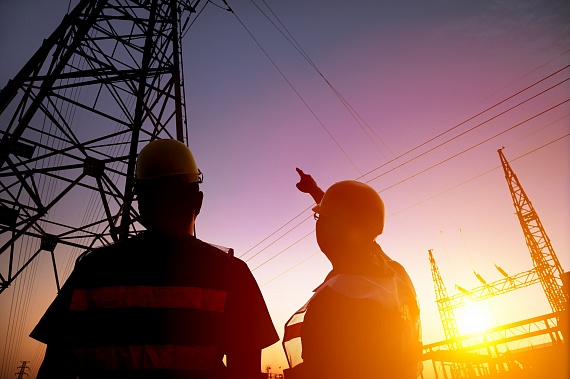Russia Remains the World's Largest Exporter of Energy Resources

As BP forecasts the development of world energy sector
until 2040.
In the mid- and long term, Russia will remain the largest exporter of
energy resources in the world. By 2040, Russian export will provide more than
5% of the global demand for primary energy resources. With its 14% of world
production of oil and gas, Russia will also remain one of the largest producers
of fossil fuels. This data is reported in the Energy Outlook 2040, distributed
by BP at the 14th Russian Petroleum and Gas Congress, which took
place on 18–19 June in Moscow.
According to the forecast, the production of primary energy sources in
Russia will grow by 20% from 2016 and 2040, but the Russian share in world
energy production will decrease from 10% to 9% during this period.
By 2040, oil production in Russia will grow by 2 million barrels per day
(b/d) and will stay at 13 mln b/d. As for the production of liquid
hydrocarbons, Russia will yield only to the United States and Saudi Arabia. Gas
production will increase by 29%, to 72 billion cubic feet per day, amid growing
demand in world markets. Here, Russia will be second in the world after the
United States.
The increase in energy consumption in Russia (+6% from 2016 to 2040) will
be the lowest among the BRICS countries. In India (+165%), Brazil (+60%) and
China (+41%) energy consumption will grow much faster. The Russian share in the
world consumption of primary resources will decrease from 5% in 2016 to 4% by
2040. The main demand for the primary energy sources will come from transport
(+50% by 2040). Industrial consumption will decrease by 4%.
The growth of renewable energy consumption in Russia by 2040 will exceed
7500%, but its share in the fuel and energy balance (FEB) will be only 2%,
while it is 17% on average in other BRICS countries.
Nuclear energy consumption will take the second place in terms of growth
(+29% by 2040), followed by oil (+26%). Hydropower (+8%) and gas (+1%) will
grow significantly slower, and coal consumption will decrease by 32%.
Natural gas will retain a dominant role in the FEB (50% vs. 52% in 2016).
The oil share will increase from the current 22% to 26%, and coal will decrease
from the current 13% to 8%.
Natural gas will remain the main fuel for generating electricity with a
share of 53%. The share of nuclear energy will increase from 15% to 19%, the
share of hydropower will remain at the level of 15%, and the share of coal will
decrease from 14% to 8%.
The share of energy in the Russian economy will be reduced by 25% by 2040.
This is lower than in China (-53%), India (-37%) or the average for non-OECD
countries (-41%).
According to the BP Statistical Review, in 2017, natural gas production in
Russia set a new record, having increased by 8.2% (over a third of the world's
growth). Russia remained the world's second largest producer of gas in the
world, providing 17.3% of global production. Oil production remained at the
level of 11.3 million b/d and amounted to 12.2% of world production.
Russia has maintained its position as the world's largest oil and gas
exporter. Russian oil export increased by 3.1% (to 8.6 million b/d) and
accounted for 12.7% of global export; gas export increased by 7.9% (to 231
billion m3), accounting for 25.9% of the increase in global export.
Source: oilcapital.ru




